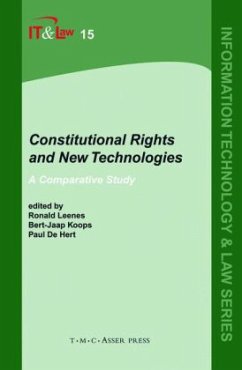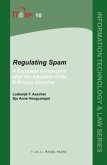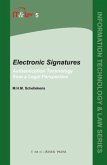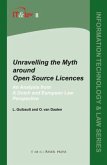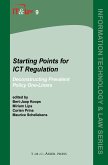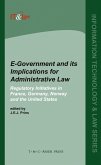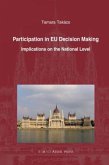New technologies affect the legal system, but do they and should they also affect constitutional rights? These are questions that every country has to address, taking into account their constitutional system and legal tradition. This book surveys changes in constitutional rights and human-rights policy related to developments in ICT and new technologies in the USA, Canada, France, Germany, Sweden, Belgium and the Netherlands. The seven country reports provide in-depth accounts of changes to the constitutional system (such as a constitutional review and the influence of international law), case law and (policy) developments with respect to freedom of expression, privacy, inviolability of the body, inviolability of the home and freedom of communication. The book is recommended to policy-makers, members of the judiciary, academics and practitioners, as it provides inspiration for diverging strategies to achieve continued protection for the widely-shared constitutional values of privacy and freedom of expression.
Hinweis: Dieser Artikel kann nur an eine deutsche Lieferadresse ausgeliefert werden.
Hinweis: Dieser Artikel kann nur an eine deutsche Lieferadresse ausgeliefert werden.

